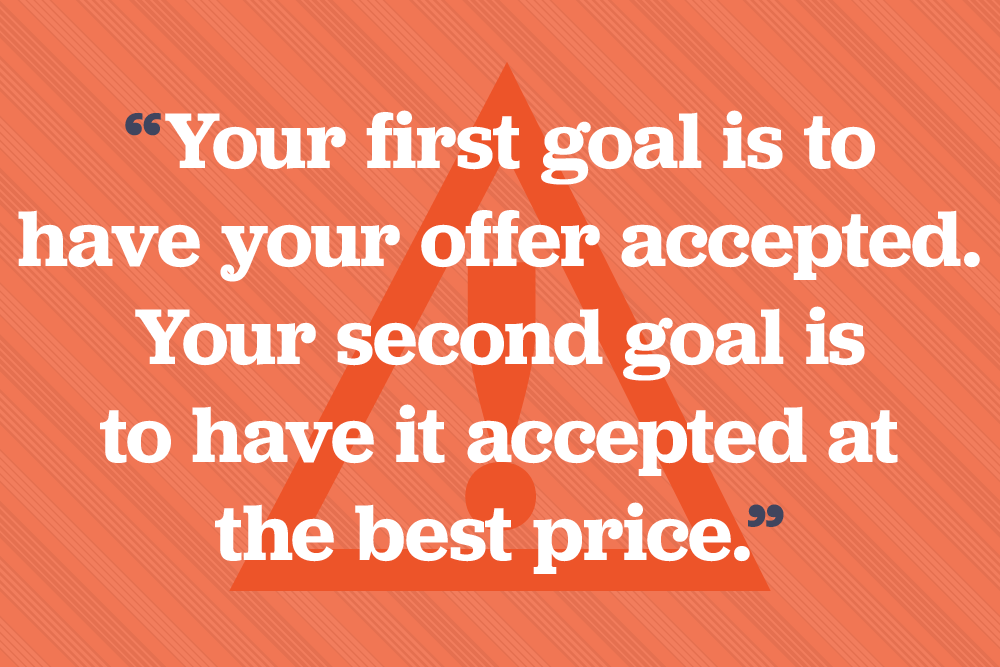More isn’t always better — especially when it comes to talking to a seller’s agent. Your buyer’s agent, your guide and advocate in your real estate journey, should know everything about your needs, your desires, and your situation. But the seller’s agent is an entirely different story.
It doesn’t happen very often — your buyer’s agent is almost always your voice to the seller — but there you are at the open house, eating a slice of quiche, and the seller’s agent, noticing that familiar glow in your eye, comes over and starts to chat you up.
Here are a few things you shouldn’t talk about.
How much you like (or dislike) the house
Basically, play it cool. You want the seller to know you could feel at home here and that you would be serious about any offer you might make, but she doesn’t need to know that this house is exactly what you’ve been looking for and that you’ll do whatever it takes to get it.
You also shouldn’t be too critical. If you do end up making an offer, you don’t want to reveal anything that could make you seem like a less-than-viable buyer. Especially in a competitive environment, you want the seller to think you’re as solid as they come.
The seller has the power in hot markets, and he or she may choose to go with an offer that’s more likely to close than one that’s potentially shaky, even if it’s a few thousand dollars higher.
One of my colleagues hosted an open house where a couple was criticizing the house at every turn — and then the following day they submitted an offer.
“They were the last people at the open house that I expected to be seriously interested in this house,” she says.
It turned out that those critical buyers put in the highest offer, but after some discussion, the sellers decided to go with a lower offer from someone who understood the house and seemed less likely to change their minds or ask for unnecessary concessions after the inspection.
What you can and will spend
You also don’t want to talk about your financial situation. While you won’t be directly negotiating with the seller’s agent, if he or she knows how high you’re either willing or able to go, then your agent could be at a disadvantage.
Your first goal is to have your offer accepted. Your second goal is to have it accepted at the best price.
Neither of these goals is served when the sellers know where you can and cannot land on the final sales price. It makes no difference whether your offer relates to finances or personal choice or your last tarot reading. As with romance, a little mystery goes a long way.
The seller should get a fair price for what she’s offering, and if you think it’s the right house for you, the fair price has little to do with the most money a bank will give you.
Be smart and eat your quiche
In the end, your best bet is to eat your quiche, ask a lot of questions, and let the seller’s agent talk about the house.
Anything else worth revealing will be done later when your agent does her job by getting you the house at the right price.


